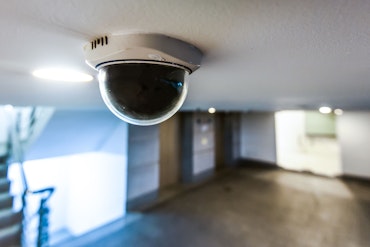ROYAL COMMISSION: Misuse of psychotropic drugs, lack of qualified workers
The dangers of antidepressant use in dementia patients and decline in registered nurses across the system were topics on the table during day three of Royal Commission into Aged Care Quality and Safety hearings in Adelaide yesterday.

Too many registered nursing tasks are being undertaken by less qualified workers due to staffing pressures, the Commission hears. (Source: Shutterstock).
Australian and New Zealand Society for Geriatric Medicine President Edward Strivens says about 80 percent of people in residential care with dementia were being prescribed at least one psychotropic drug, including antipsychotics, antidepressants, and sedatives.
He says the side effects far outweigh any benefits, adding that medication shouldn’t be used as a substitute for quality care.
“If we treated 1000 people for a few months with antipsychotic medications we would get some improvements…in around 10 percent, maybe 12 percent of those people.”
“However, we would see an excess of 10 extra deaths in those 1000 people and 16 strokes as well as around 10 to 12 percent of people taking those medications more likely to fall over.”
“They are a last resort but too often we see them used as a first resort.”
Unbalanced skill mix in workforce detrimental to quality care
The Australian College of Nursing’s Deborah Parker says registered nurses aren’t often equipped to provide mental health assistance to patients.
“We are not mental health nurses,” she says. “We are not trained even in providing mental health (services)…we don’t have that level of expertise that was referred to (by Professor Strivens) in terms of how do we manage…people with depression and anxiety who also have potentially dementia as part of that.”
“We do need to think about the training skills required and whether that’s from a professional development point of view of having more skills in that area.”
Professor Parker also notes that while the number of registered and enrolled nurses in the system is falling, the complexity of patient needs is increasing, making for a stressful working environment.
“The percentage of registered nurses has gone down from about 21 percent in 2003 down to about 14.9 percent now,” she says. “There has been an increase in what’s called the assistant in nursing, or personal care worker, the unregulated worker.”
According to Professor Parker, the unbalanced skill mix of registered and unregistered workers is the biggest issue facing the aged care sector over the next 20 years.
She says tasks such as pain and wound assessments, attending to continence issues and creating detailed care plans for residents, which she says are preferably done by registered nurses, are often falling to less-qualified workers due to staffing pressures.
“The unregulated worker, with a very short certificate training, with approximately 120 hours (of training) in care… is not prepared and does not have the level of assessment and planning skills required to meet the needs of the current aged care clients (compared to a registered or enrolled nurse).”
“Things get missed”
Australian Nursing and Midwifery Federation Federal Secretary Annie Butler says figures showing one registered nurse to 60 residents aren’t surprising.
“Unfortunately that’s not the most extreme,” she says.
Ms Butler says the ideal skill mix would be 30 percent registered nurse, 20 percent enrolled nurse and 50 percent personal care worker.
The Commission heard experiences from nurses saying they were under tight time pressures, with one saying they only had 15 minutes with each patient in the morning and was expected to shower, dress and attend to needs of high-care dementia.
Ms Butler says stories like these are all too common, and that staff rushing between tasks cannot give quality care.
“That is a story we hear all the time just again and again, and people are time clocked, (given) six minutes to do each shower.”
“They will ration care and so they will pay attention to the absolute must-dos. So many other things … get missed.”
Hearings will continue in Adelaide next week, with representatives from the Royal Australian College of General Practitioners, Aged Care Guild and Leading Aged Services Australia among those to give evidence.











![The new Aged Care Act exposure draft is slated for release in December of 2023, but advocates hope to see it rolled out on January 1, 2024. [Source: Shutterstock]](https://agedcareguide-assets.imgix.net/news/articles/wp/agedcareact__0811.jpg?fm=pjpg&w=520&format=auto&q=65)












Comments